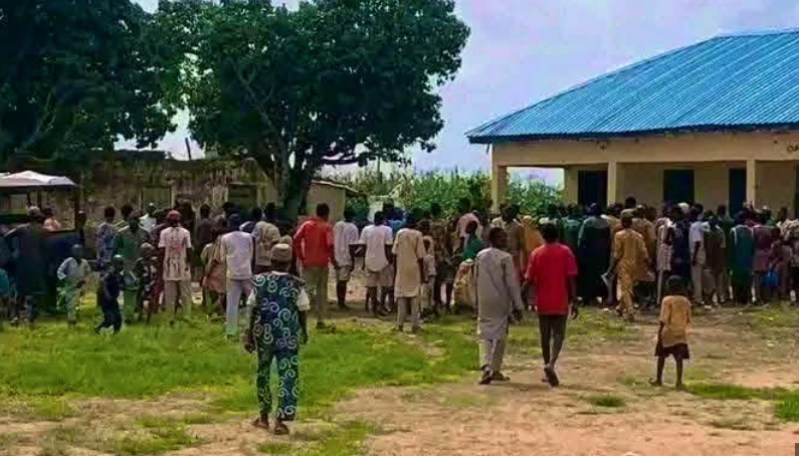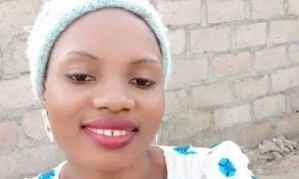
A food vendor in northern Nigeria was killed on Saturday (Aug. 30) by a mob that accused her of blasphemy against Prophet Muhammad. A casual conversation between a nephew, who jokingly suggested marriage to the woman, turned into another lynching by the public on the grounds of alleged blasphemy.
The response of the Muslim woman, identified only as Ammaye, was not clear, but the mob deemed it blasphemous enough to warrant a lynching despite Nigeria's supreme court ruling that blasphemy allegations must be proven in a court of law.
While the district heads attempted to hand her over to police for investigation, the agitated crowd overwhelmed them, stoned her and then burned her to death, according to sources. Police confirmed the incident, stating that she was "set ablaze before the reinforcement of the security teams". While local officials reported that "calm has since been restored to the area," critics like human rights activist Aisha Yesufu condemned this as an inadequate response to the taking of a human life.
Amaye's brutal murder was not an isolated incident but a recurring pattern of mob violence in northern Nigeria, where blasphemy accusations frequently bypass formal legal processes in favor of vigilante justice. This practice is particularly prevalent in the 12 northern states that operate under sharia (Islamic law) alongside secular law, the BBC states. These accusations disproportionately target religious minorities, notably Christians, leading to mob attacks, destruction of property and forced displacement.
Amnesty International's 2024 report revealed that at least 91 people were victims of mob action on religious pretexts between 2017 and 2024, with most being Christians or members of other religious minority groups. The human rights group condemned the lynching and urged the Nigerian authorities to "immediately and transparently investigate" the death of Ammaye.
"The lynching of Ammaye following an exchange with a young man is deplorable, and authorities must ensure those responsible for her death are immediately arrested and brought to justice. That a mob overpowered security personnel and instantly lynched her shows utter disregard for the sanctity of life and due process," posted Amnesty International on X.

One of the most widely known cases is that of Deborah Samuel Yakubu, a Christian college student in Sokoto. In May 2022, she was stoned and burned to death by a mob of Muslim students after being accused of blasphemy in a WhatsApp group. The two suspects were arrested but charged with relatively minor offences and later acquitted due to the "no-show of prosecution lawyers."
Rhoda Jatau, a Christian health worker, was arrested and detained for over 18 months without trial in Bauchi in May 2022, for condemning Deborah's murder.
Sadiq Mani Abubakar, a Hausa Christian lecturer, had his home and vehicles torched in January over a decade-old Facebook post questioning the Quran. He described feeling "utterly abandoned by the Christian Association of Nigeria (CAN)" and faced suspension of his salary by the federal government after fleeing for his life. Other victims include Gideon Akaluka, lynched and beheaded in a police cell in Kano in 1994, and Christian traders burned alive in Niger State in 2016. Muslims accused of blasphemy, such as Usman Buda in Sokoto (2023) and a 50-year-old man in Kano (2008), often fall victim to mob justice.
Nigeria's constitution explicitly guarantees freedom of religion and expression. However, the implementation of sharia in northern states often creates a parallel legal system that directly conflicts with these fundamental rights. Law enforcement agencies frequently "hesitate to intervene in mob violence cases, either due to fear of backlash or lack of political will," thereby fostering a "culture of impunity", according to International Christian Concern.
In April, the ECOWAS Community Court of Justice delivered a landmark ruling, declaring certain blasphemy provisions in Kano State's Penal Code and Sharia Penal Code Law (2000) incompatible with international human rights standards, particularly the right to freedom of expression. The court mandated Nigeria to repeal or amend these and similar laws to align with its international obligations.



![[Book review] ‘Evangelization or Colonization?’ by Analzira Nascimento](https://www.christiandaily.com/media/cache/thumbnail/0/12/1238sp_116w_77h_1x_1y.png)

